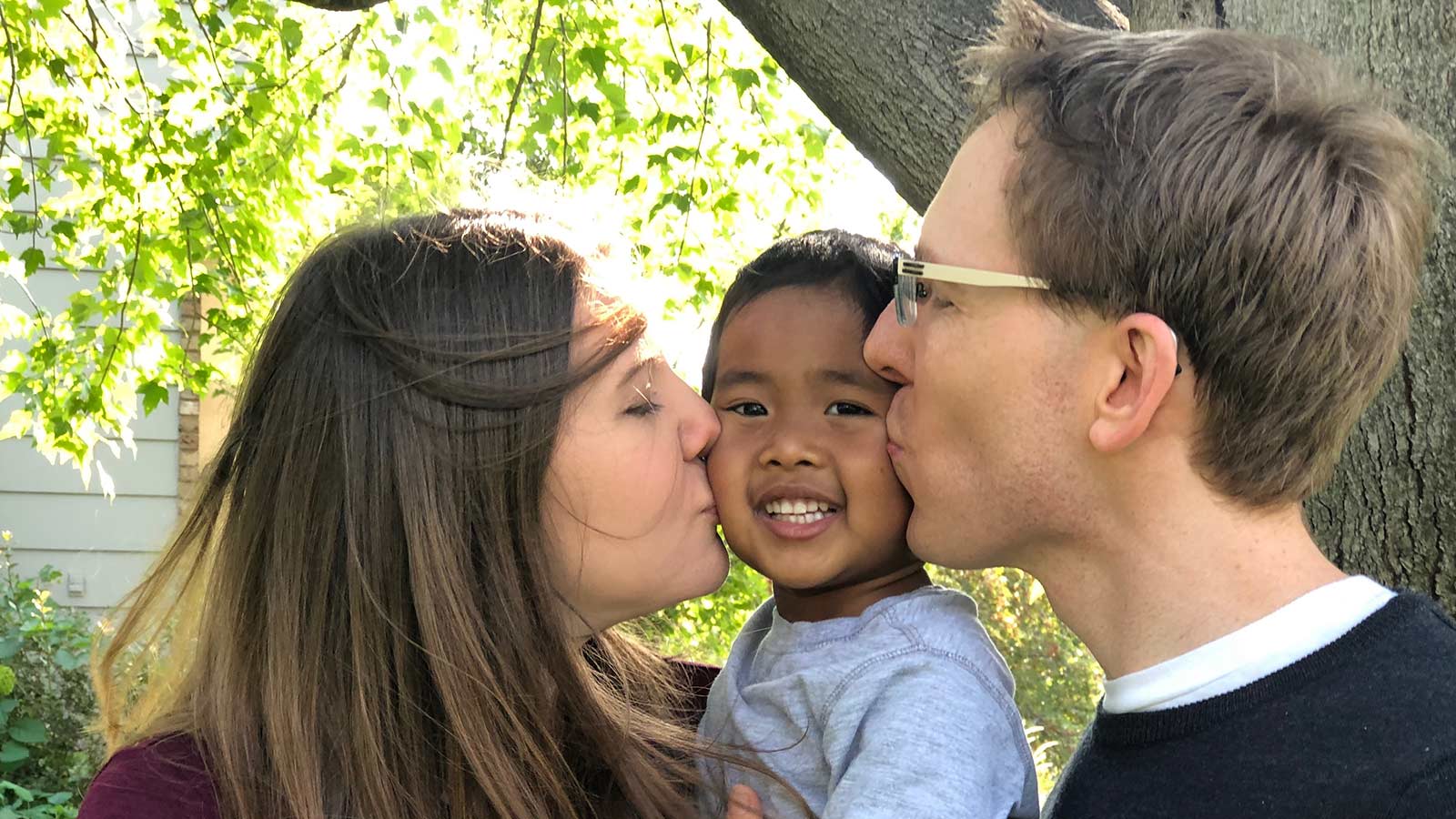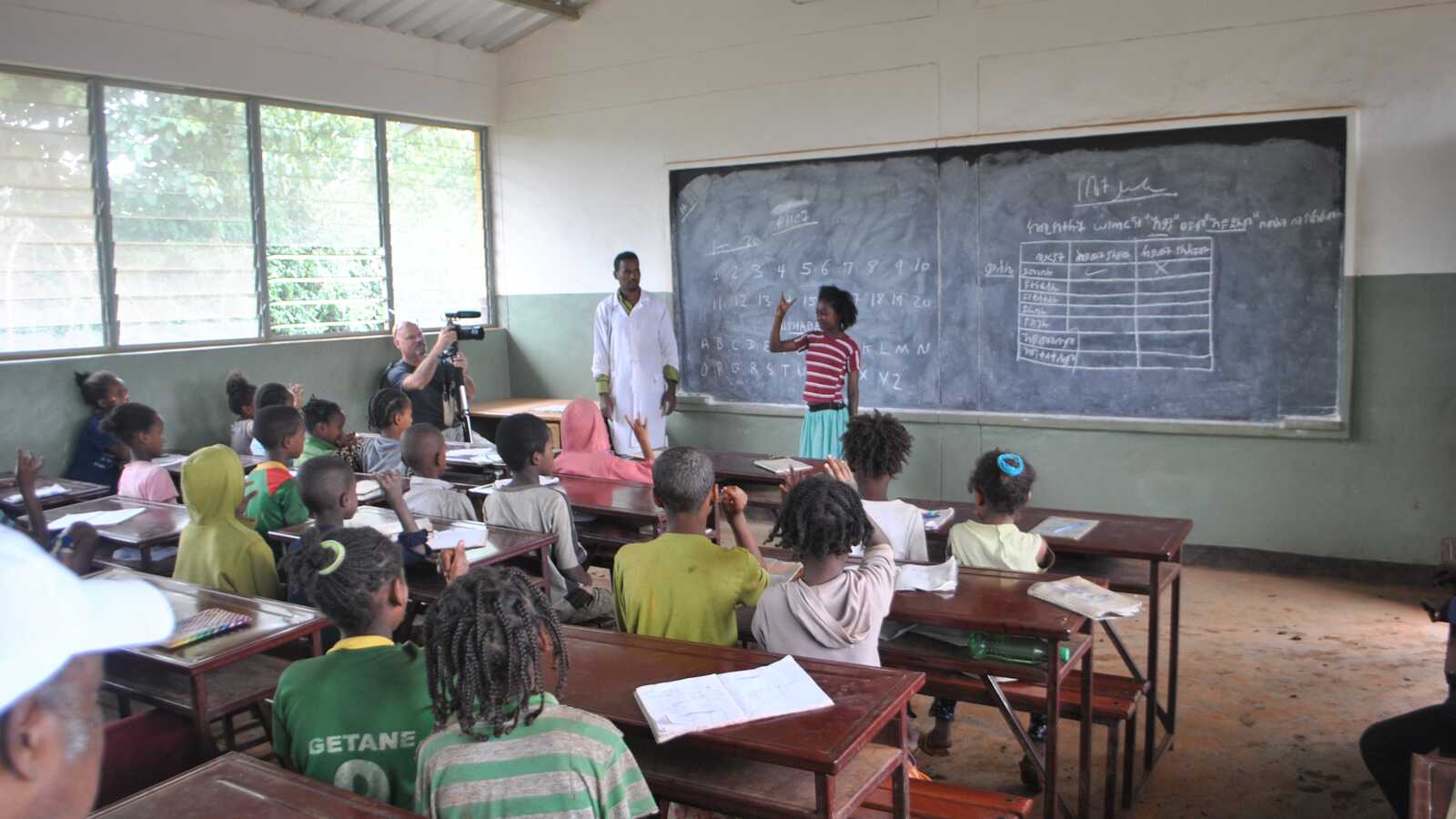Four years ago, Holt International and the rural community of Shinshicho, Ethiopia partnered to build the first maternal-child hospital in the region. Now in its final phase of construction, the hospital is nearly complete. Throughout the area, Holt is supporting projects to help children and families grow strong and healthy.
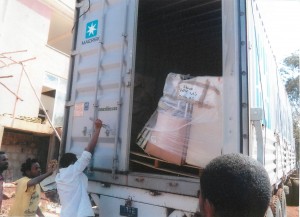
At the end of March, more than two tons of medical equipment arrived at the Holt-funded maternal and child hospital in Shinshicho, Ethiopia after months of delays in the Port of Djibouti customs. Donated by hospitals and collected by the Oregon Rotary Club in September 2013, the equipment will outfit the hospital’s patient wards and surgery rooms and its installation is the last step to complete a 4-year effort to bring greater healthcare to children and families in this rural region of Ethiopia.

The community of Shinshicho gathered around the gate of the hospital to celebrate the arrival of a giant semi-truck plastered with a sign that read “Holt International Ethiopia MCH Hospital Shinshicho.” The truck carried two shipping crates full of X-ray machines, gurneys and other life-saving medical supplies.
Once complete, the hospital will provide advanced medical care to more than 250,000 people in the region. The closest hospital is nearly 12 miles away and a lack of transportation and health care in the area has caused families to gamble on the health of themselves and their children — sometimes forced to hope for the best rather than risk the journey to the hospital on foot.
As the hospital nears completion, Holt is working with regional authorities to hand over the long-term operational and staffing responsibilities. Last week, three government officials came to Shinshicho to meet with local authorities for three days, and together they assessed the progress of the hospital and made a plan to complete the final tasks. Holt hopes to have the hospital complete this summer.
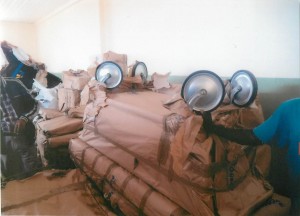
Meanwhile, Holt’s two other primary programs in the region are thriving! A Holt-funded school for deaf students in the region grew to 300 students, ranging from first grade through high school. In response to the growth, Holt worked with the Ethiopian Ministry of Health to recruit four additional teachers, bringing the total to eight.
The prevalence of deafness in this region is alarmingly high, and disabilities are heavily stigmatized. However, the school has helped to raise awareness about deafness in the region, and the efforts of the school even caught the attention of the Ministry of Health, which plans to investigate potential causes of deafness in Shinshicho. Because many students travel long distances to attend the school and often arrive without food, Holt has worked to supply a lunchtime meal to the children. Already, the teachers say that providing lunch has improved student concentration, and the children look healthier, happier and are able to absorb more of their lessons. Holt is now recruiting sponsors for many of the students and families at the school.
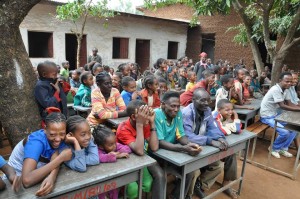
Also nearby is a new kindergarten program, which Holt began funding in the last year. Holt helped to hire teachers to work with the 187 young students, which has grown from 130 this year. The kindergarten offers morning and afternoon sessions, splitting the children into two smaller groups. Teachers and families are collaborating to spruce up the school, adding gardens and colorful, child-friendly décor.
We look forward to seeing how the combined efforts of the hospital, the deaf school and the kindergarten program continue to strengthen the health and well being of children and families in Shinshicho.


